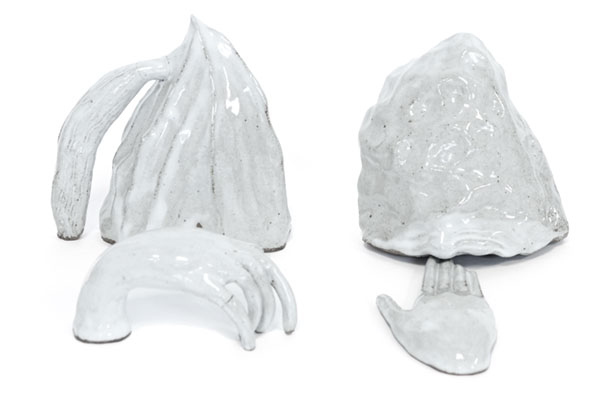
from Lilli Carre’s show at the MCA in Chicago
News
The holidays are upon us, obviously. Not exactly sure what posting here will be like. We’ll definitely have new posts Monday and Tuesday, and PencilPanelPage is posting Thursday…so, yeah, we’ll be around in some form or other most of the week. So stop by if you have a minute to spare from the merriment.
On HU
Featured Archive Post: Richard Cook with a gallery of Super-Santa covers.
I talk about the Regency Romance as horror and the Cecelia Grant’s Blackshear series.
I write about the small as life pleasures of Tolkien’s The Hobbit.
Orion Martin asks “What if the X-Men were black?”
Robert Stanley Martin is mostly underwhelmed by Julie Maroh’s comic “Blue Is The Warmest Color.
Chris Gavaler on Paul Revere, Batman,and jihad.
I wrote about the first X-Men comics in which the X-Men behave as establishment lackeys.
Michael A. Johnson on Christmas and the seasons of Krazy Kat. This finishes up the PPP Krazy Kat roundtable.
Utilitarians Everywhere
At the Chicago Reader I reviewed Lilli Carre’s lovely show at the MCA in Chicago.
At Salon:
—I listed 14 country songs for people who hate country.
— I talked about Her and Philip K. Dick and empathy for white guys.
Other Links
At the Atlantic I talked about Vivian Maier and the uncomfortable politics of outsider art.
At Splice Today I talk about
—America’s educational apartheid, and how you can’t fix schools by fixing schools.
— conservatives, progressives, and polygamy.
Other Links
Mari Naomi writes about being harassed onstage at a comics panel. Scott Lobdel, who was the harasser in question, apologizes.
And how to discourage women from cartooning.
Ta-Nehisi Coates on the toughest gang in Chicago.
Wazhma Frogh on the problem with trying to save victims of human trafficking when you don’t know what you’re doing.
Meghan Murphy on twitter feminism.
As Brienne point out, this music best of from Mother Jones is pretty funny.
Some idiot plagiarized Dan Clowes, if you haven’t already heard.

I really enjoyed the Vivian Maier article and I think you got at something that’s bugged me for years about outsider art, particularly the case of Henry Darger. What we don’t know about Maier and Darger allows the critic/fan to fill in all sorts of details; no interviewer ever asked them questions about their lives and works, so there’s a convenient blank slate upon which to write any narrative that one wishes. Consider a thought experiment about either Maier or Darger: would you still like these works if the artist had in fact gone to art school and been a part of the art world? In the case of Darger, I would say “yes, absolutely”. I find them fascinating and beautiful entirely on their own merits. The story behind these works is certainly interesting: that a somewhat obscure, marginal figure had this rich inner life and produced a huge body of very impressive work that reflected that inner life with dazzling results. (I even see some intriguing parallels with Tolkien. They both lived from 1892–1973 and they were both devout Catholics, who very clearly incorporated elements of their faith into his works and who both created complete worlds, with history, geography, etc. But that’s the subject for a whole other discussion.) But I think it’s pretty clear that for a lot of critics and fans, the fact that he produced works entirely for his own reasons apart from the art world during his own lifetime is a huge part of his appeal. This background is certainly mentioned in virtually every article and book written about him, as it is in discussions of Maier’s life and works.
The particulars of Darger’s “discovery” are every bit as unlikely as those of Maier’s and the fact that his landlords, Nathan and Kiyoko Lerner, just happened to be part of the art world themselves has always struck me as just a bit too convenient. I’ve even extended my thought experiment to ask myself a further question: what if Darger was in fact an elaborate art world hoax à la Ern Malley (http://en.wikipedia.org/wiki/Ern_Malley)? Would I still like the works if that were the case? I think I can answer that in the affirmative. I really do like his stuff. And by that same criteria, I still like Maier’s work too.
Yeah; I don’t think it invalidates the work that there’s this story attached. I think it’s mostly an uncomfortable question for the art world and its fascination with marginalization, and with the way that marginalization is commodified.
I liked your piece on polygamy. I wrote about it briefly for my next blog post on the Middle Spaces (it is kind of an end-of-year grab bag post) and tried to make the point that while historically patriachal institutions that exploit women are a concern (so not just polygamy, but sex work or porn), prohibitions against them just drive them into a zone where that exploitation can continue in the dark. The decriminalization of polygamy allows for more legal and public recourse for people in bad situations, while also allowing those in good situations to live their lives without fear. Ultimately, believing in the equality of women also means respecting that generally speaking they have the foresight and agency to make their own choices and to respect those choices. It is better to help people whose choices do not work out for them than to limit those choices for consenting adults.
That’s a good way to put it. Especially since there kind of aren’t any non-patriarchal institutions, history being what it is.